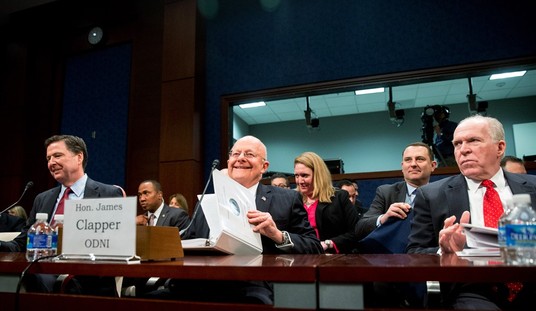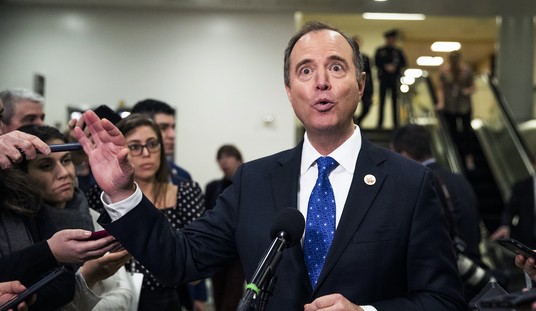I could hardly sum up more pithily the problem with Mitt Romney’s candidacy in four words than “David Brooks loves him.” Brooks’ column today is revealingly out of step with the party and the nation Romney is seeking to lead.
Let’s start with what’s missing from Brooks’ description of the job Romney is applying for:
[T]he challenges ahead are technically difficult. There’s a reason that no president since Reagan has been able to reform the tax code. There’s a reason no president save Obama has been able to pass health care reform. These are complicated issues that require a sophisticated inside game – navigating through the special interests, building complex coalitions. They are issues that require executive expertise.
Now, I don’t discount the idea that a good “inside game” is important, and indeed is one of the reasons why we generally look for presidents with some record of executive political leadership – indeed, for presidents with more of it than Romney brings to the table from a single term in office. But notice who is missing in this picture? The voters.
Brooks ascribes no importance whatsoever to the president’s role in persuading the public of anything (a critical factor in Reagan’s tax cut and tax reform fights); he simply assumes that backroom deals can be cut that make the public’s role moot:
He could probably work well with the leaders of his own party. If Romney were to be elected, he would probably share power with the Senate majority leader, Mitch McConnell, and the House speaker, John Boehner. These are not exactly Tea Party radicals. Instead, they are consummate professionals and expert legislators who could plausibly work together.
What about Romney’s ability to sway voters?
Romney can be dull. Political activists like exciting candidates. But most people, who have lower expectations from politics and politicians, just want them to provide basic order. They want government to be orderly so they can be daring in other spheres of their lives. Romney is the most predictable of the candidates and would make for the most soporific of presidents. That’s a good thing. Government would function better if partisan passions were on a lower flame.
This is all well and good if the government is set on a reliable course and needs no alterations, and if the partisan opposition was vanquished once and for all; you pick a technocratic manager to run the big machines well. (We’re talking domestic policy; Brooks makes no mention of national security or international relations). But none of that is true: Brooks gives lip service to the idea that we have real problems with an unsustainable spending and entitlement state, but he is too happy with the status quo to admit to himself that fixing the country’s genuine fiscal problems will require real, wrenching changes and an obstinate determination to see things through (let alone to survive the bruising fights that will loom over the next Supreme Court nominations, which are similarly a major inflection point). Nor does he address the thick hide a new president will need to make genuine reductions in the regulatory burdens that currently weigh down business, or to withstand the now-perennial calls for new bailouts (the next big ones on the way will be bailouts of the Postal Service and the State of California).
Let’s turn to how Brooks misunderstands the nature of the challenges ahead:
[T]his is not a party riven by big ideological differences. This is not Reagan versus Rockefeller. Whoever wins the nomination will be leading a party with a cohesive ideology and a common set of priorities: reform taxes, replace Obamacare, cut spending and reform entitlements. The next president won’t have to come up with a vision, just execute the things almost all Republicans agree upon.
This vision of a bloodless party dispute over technical competence sounds good, although of course this is what the Rockefeller/George Romney side of the party has been saying for decades. It’s true that the big differences within the party these days are less about ideology per se than about strategy and tactics, but they are no less divisive for being so (hence, Romney echoing his own father’s attacks on Barry Goldwater in his campaign against Rick Perry).
Note the crucial word choice “replace Obamacare.” The word is not chosen by accident, and it carries enormous ideological freight. The great health care divide in the party for some time has been over whether Republicans need to accept a comprehensive and universal approach to health care, rather than leave the system as is and tinker piecemeal, by trial and error, around the edges seeking improvements. And Mitt Romney is the high priest of the former faction – the centerpiece of his agenda in his single term in office was passing a “comprehensive” and “universal” health care plan built on a foundation of individual mandates. Rather than a masterful inside game, what happened in that case was that Romney got rolled, badly, by Ted Kennedy and his state-level allies into a plan that has driven up insurance premiums in Massachusetts and laid the political groundwork for Obamacare.

Romney was warned of these consequences by conservatives at the time, and ignoring those warnings was the most significant decision, and largest strategic error, of his political career. But to Brooks, Romney’s failure on his signature issue counts as a feather in Romney’s cap because a big, complicated bill got passed with the support of a lot of interest groups. Consequences – and voters – be damned.
What does it mean to “replace” Obamacare? The next GOP president should make it a goal on Day One to repeal the bill and go back to the drawing board. Certainly, that should include a plan to follow repeal of the PPACA with the introduction of new, more modest proposals to improve the health care system in this country; nobody argues that our system is perfect, nor that it is such a libertarian utopia that government has no role in fixing problems that are in many cases the creation of government.
But the largest strategic error that can be made is for the next president to link repeal of Obamacare to passage of some equally “comprehensive” plan to “replace” it – thus dissipating political momentum on passage of a new, complex bill that may prove equally unpopular (especially at a time when the president will have to be busy with many other economic issues). And Romney’s record and pronouncements thus far have indicated nothing to give confidence that he wouldn’t fall into precisely such a trap (his emphasis on suspending Obamacare by executive order, while not a bad thing by itself, suggests the worrisome possibility that he might not put a full effort into getting it entirely off the books before the White House and its power over executive orders falls back into Democratic hands).
Time and again the past five years, David Brooks has been impressed by the supposed erudition of Barack Obama, and time and again he has been disdainful of competing virtues more important to democratic leadership and popular sovereignty. His ode to Romney demonstrates how little Brooks has learned from his own errors, and how far removed Romney’s appeal is from those virtues.














Join the conversation as a VIP Member